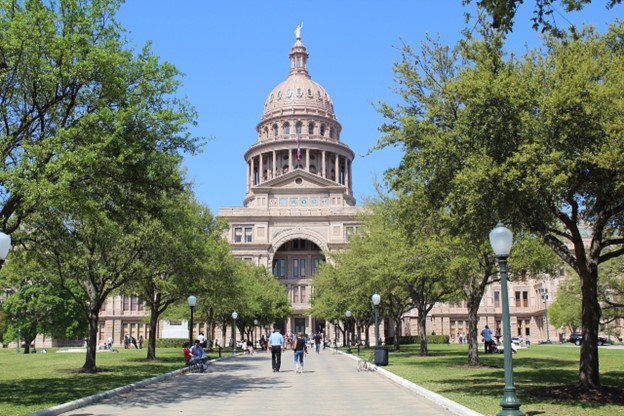Texas has had a veritable roller-coaster ride when it comes to gambling policies over the years. Politicians usually oppose gambling, considering it to be constitutionally and morally questionable, in order to maintain the state’s current beliefs. While this political rhetoric may have made them appear connected to Texas courts, it was never in line with the opinions of Texas residents.
Being the home of cowboys, wranglers, and other classic western tropes, playing a good game of poker after a long day of work was always something to be enjoyed in the Lone Star state. However, all the way back in 1903, Texas essentially banned all forms of gambling within the state – and almost overnight at that!
Since then, Texas has been sticking to its guns with regards to the gambling issue. However, it’s largely backfired, as illegal gambling grew in popularity over the years and became a controversial issue. Much like the days of prohibition sparking bootleggers, people seem to be naturally driven to place bets, and there are now many loopholes that exist, allowing residents to place bets.
Early Texas Gambling Laws
At the turn of the 20th century, Texas legally banned all forms of gambling. This led to the closing of the Texas State Fair and Rodeo, which, up until then, had been centered around betting on horses. The decision was based on the overwhelming support across the state to get rid of gambling in all forms.
However, during The Great Depression which started at the end of the 20s and lasted until 1941, the government in Texas realized that they needed every possible way to generate cash. The government decided to legalize parimutuel gambling specifically with regards to horses in an attempt to help generate more cash in the form of taxes on the events.
Being Texas though, a state known for generally conservative views, the government banned gambling again four years later. In those four years, it was clear that gambling was incredibly popular as people flocked to the tracks to enjoy a day’s betting. Yet again, Texas was thrown into the doldrums of banned gambling and for a large part, data from that era shows that people generally accepted this. Ultimately, it seemed that the overwhelming view of the majority of Texans was that gambling was morally reprehensible, and due to this, the issue was never lobbied against or even really brought up for discussion.
More Options Become Available in the 70s & 80s
Gone were the days of dusty saloons at dusk where cold beers were poured over a friendly game of cards. Now, Texans simply had to make peace with the fact that they couldn’t gamble. Throughout the late 70s and early 80s, Texas made a few minor changes to laws regarding the legalization of gambling, like legalizing charitable lotteries and even bingo, but still allowed counties to decide whether they wanted to permit these forms of gambling in their area. In general though, most seemed to have accepted charitable gambling quite well and the majority of the state adopted its legalization.
In 1987, the next considerable form of gambling legalization was passed in Texas with a 2-1 motion in support of legalizing race track gambling, including dog races. This led to the birth of the legendary Lone Star Park, as well as Sam Houston Race Park and Retama Park, which are still going to this day.
Due to the overwhelming support for the previous motion, the Texas government decided to pass another law in 1988 that allowed seminal Native Americans to host casinos on their reserves, provided that they struck a deal with the local government in order to host full-service gambling, as opposed to limited gambling which could be practiced without the need for government authority and oversight.
2018 Marks the End of the Constitutional Ban on Gambling
Since then, the government finally legalized the state lottery in 1991 and in 2018, the federal government dismantled the constitutional laws restricting gambling at a national level. This led to states like Texas being able to adapt their laws to allow for online gambling – something Texas still hasn’t really budged on and continues to outlaw to this day. At the moment, billionaires like Mark Cuban are lobbying to try and get the Texas government to legalize sports betting within the state, as it could be worth over $250 million in taxes annually.
2023: The Current Situation in Texas
As of 2023, there are still no more legal gambling options available within Texas, and it probably won’t be put forward again until at least 2025. However, while gambling online is still largely prohibited within the state of Texas, the government isn’t very strict when it comes to citizens playing on sites hosted out-of-state or even offshore. The law really just prohibits online casinos from operating within Texas.
Because of this, there are loads of casinos accepting players from Texas and around the USA. Here, you can legally bet on your favorite casino games and even place sports bets to your heart’s desire without any legal issues. At the moment, this is the safest way for Texas players to enjoy a sports bet or their favorite online casino games, and it seems to be the only option for at least another year or more.














